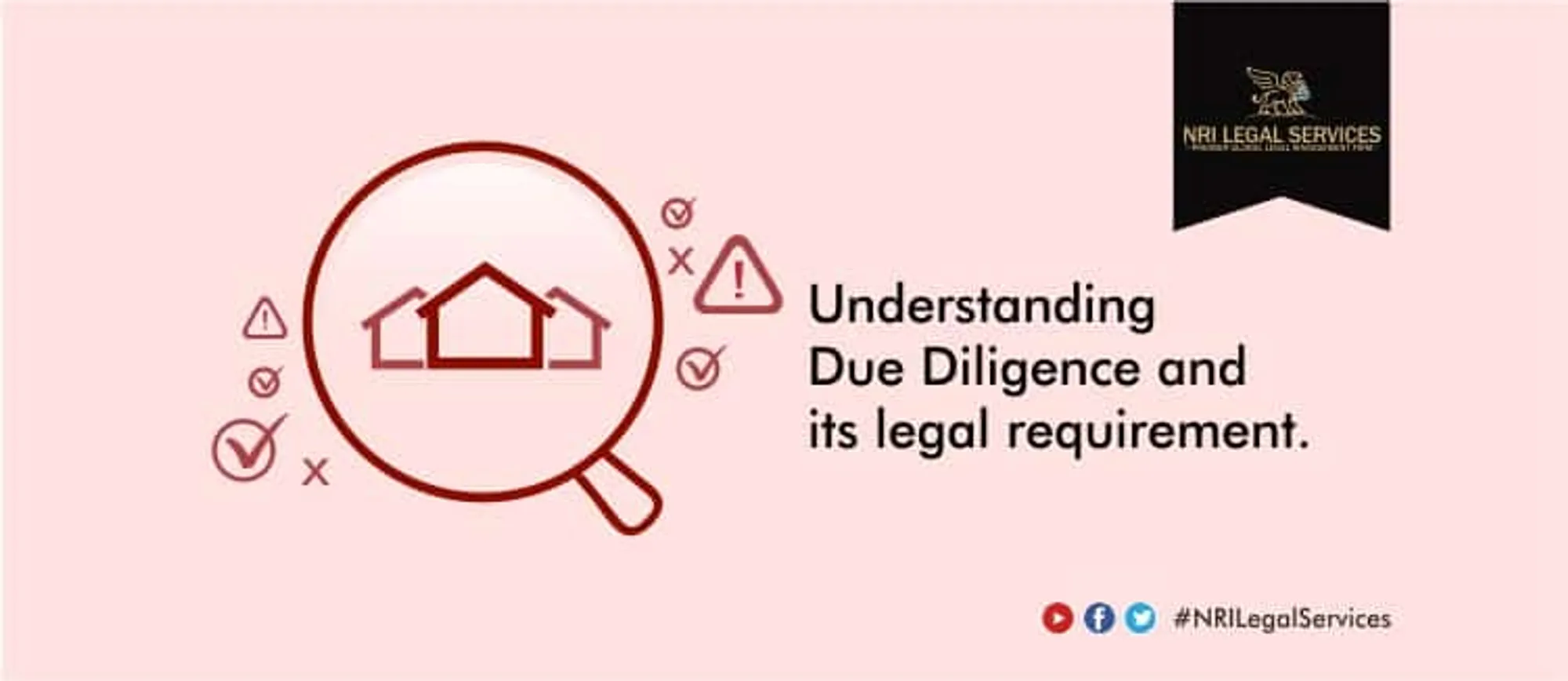Legal Due Diligence means taking all precautions to safeguard ones’ interest in a particular transaction. The transaction can be the sale of a property, buying a property, signing a contract etc. Its purpose is:
- To identify the risks involved
- To minimize those risks
The essence is to know the fact which one ought to know. It is presumed that a certain degree of prudence will be exercised for one’s own sake.
Read More: Selling a Property through a General Power of Attorney – Is it even valid?
Table of Contents
How to carry out due diligence
It involves the collection of information and data that can influence the decision, like
- Verify the credentials of the person or company involved in the transaction.
- Handle the documentation part carefully. It is crucial to obtain legal advice (professionals/law firms) for proper documentation of complex transactions, especially property-related matters. It is necessary to read and understand the contents of the document.
- Property transactions generally involve scrutiny of revenue records and search of title.
- While dealing with a company, records maintained at the office of Registrar of Companies must be cross-checked. The financial health of the company also matters.
- It is significant to know the reputation of the person or company as it exists. In the housing business, the image of the builder always has a substantial impact on the mind of the investors/buyers. It helps to ascertain whether the builder is making fake promises or is a genuine person.
Read More: Transfer of ancestral property and registration of transfer deed
Due Diligence has become significant nowadays:
Some of the reasons could be-
- Adherence to Law is imperative. So far as the legal provisions or statutory requirements are concerned, the parties to the transaction must conform to the rules and regulations. It is the duty of the parties to take care that the statutory requirements have been complied with. For instance, a buyer must ensure that the builder has obtained the necessary approvals for constructing the residential flats.
- There is an increase in the number of frauds in almost any business. In property matters, scams by impersonation and frauds by forging documents/title deeds, are prevalent. In such a scenario, some precaution will help to avoid the loss. Thus a particular standard of care is legitimately expected. For instance, in the case of buying a property, the buyer must ensure that the title is clear and the property is free from encumbrances.
- Documentation is also another major area where the party needs to be attentive. There is an upsurge in forgery and frauds by impersonation. It becomes more important to carefully analyze the documents and ensure the authenticity of the same.
- When a considerable amount is invested, the risk is higher, and one cannot afford to be negligent.
- Some statutes require the exercise of due care. e.g. Transfer of Property Act. A duty is cast upon the buyer to make an effort to verify the essential facts about the property.
- There are areas where it is mandatory to be vigilant. The consumer law and the law of contracts is based on the theory of “Caveat Emptor”. The buyer is expected to know the difference between latent and patent defects.
- Even the Courts in India, recognize the concept of due diligence for deciding the quantum of compensation. In cases where a party seeks compensation for the loss suffered in a transaction, the Courts are interested to know if the party has exercised due diligence and has tried to minimize its loss.
Read More: Sale deed: What you should know!
The extent of Due Diligence:
The amount of investigation required for collecting the relevant information and precautions to be taken for a transaction varies from case to case.
NRI Legal Services is now on Telegram. Join NRI Legal Services channel in your Telegram and stay updated.

